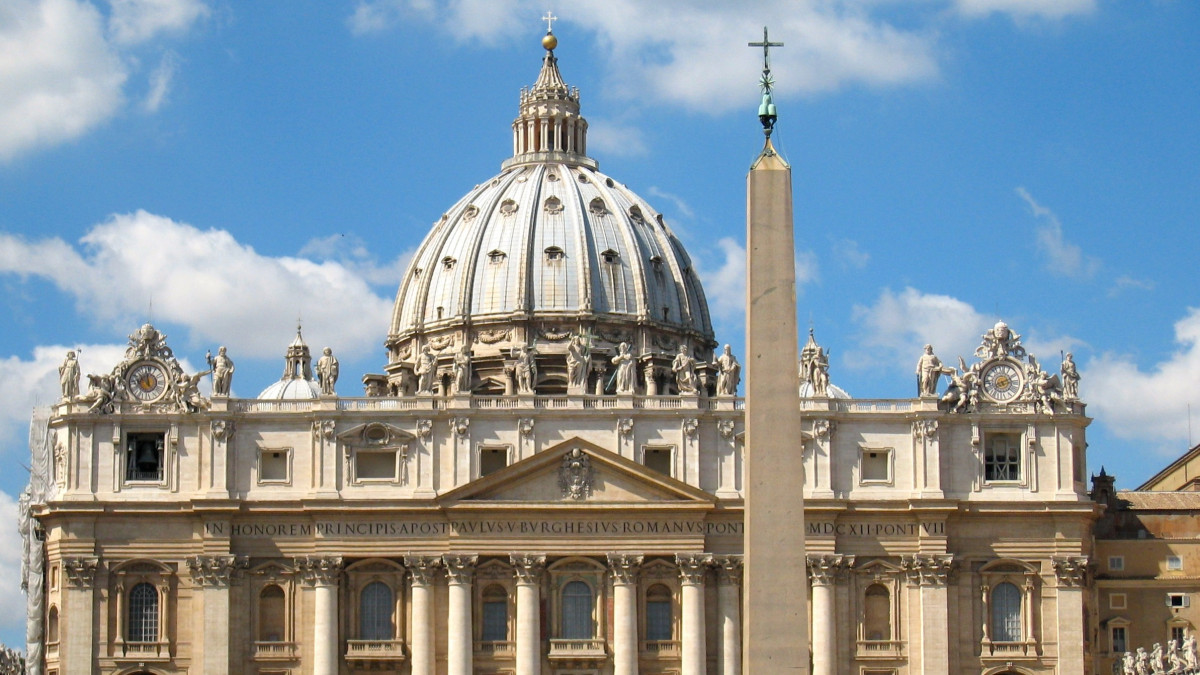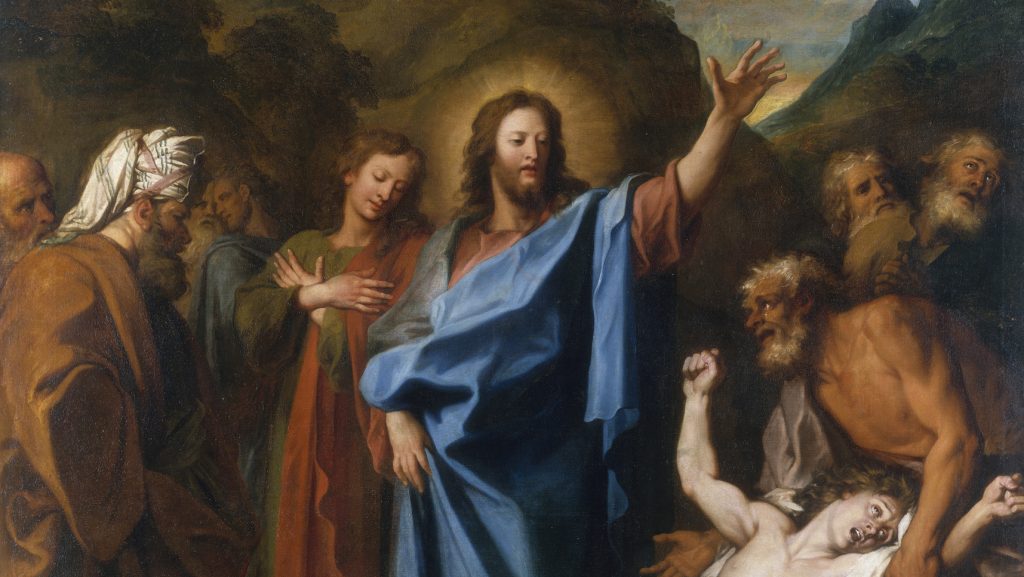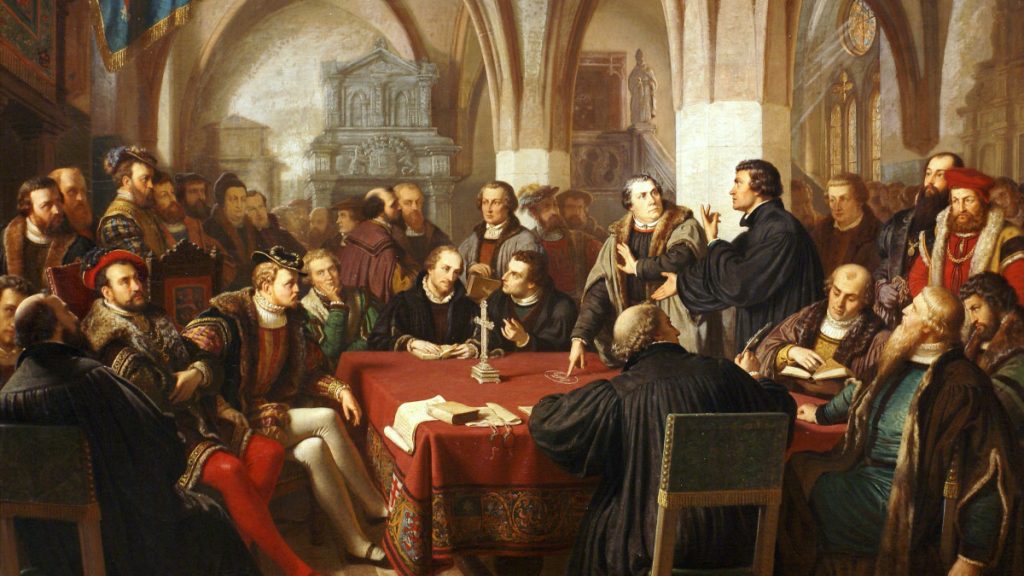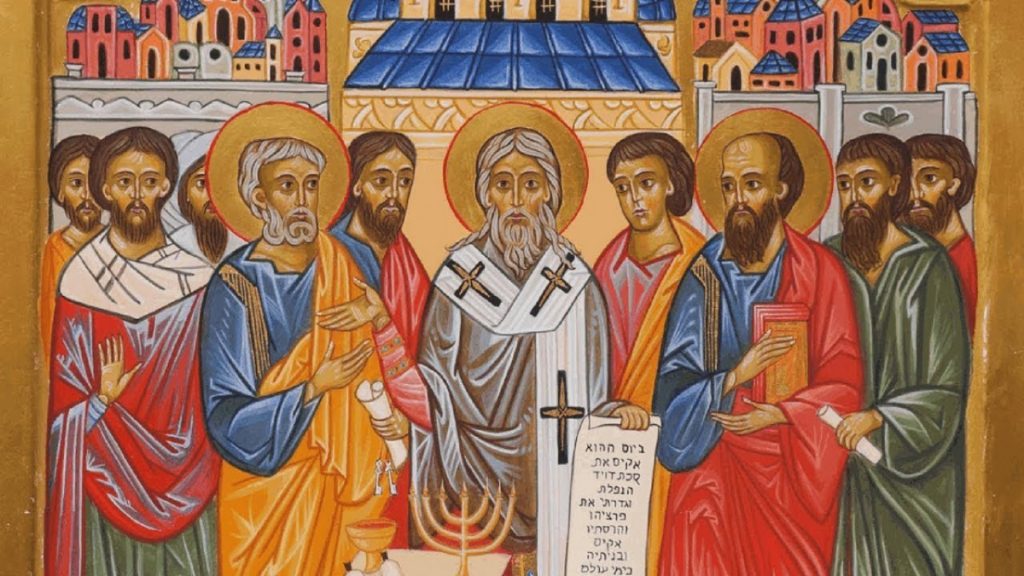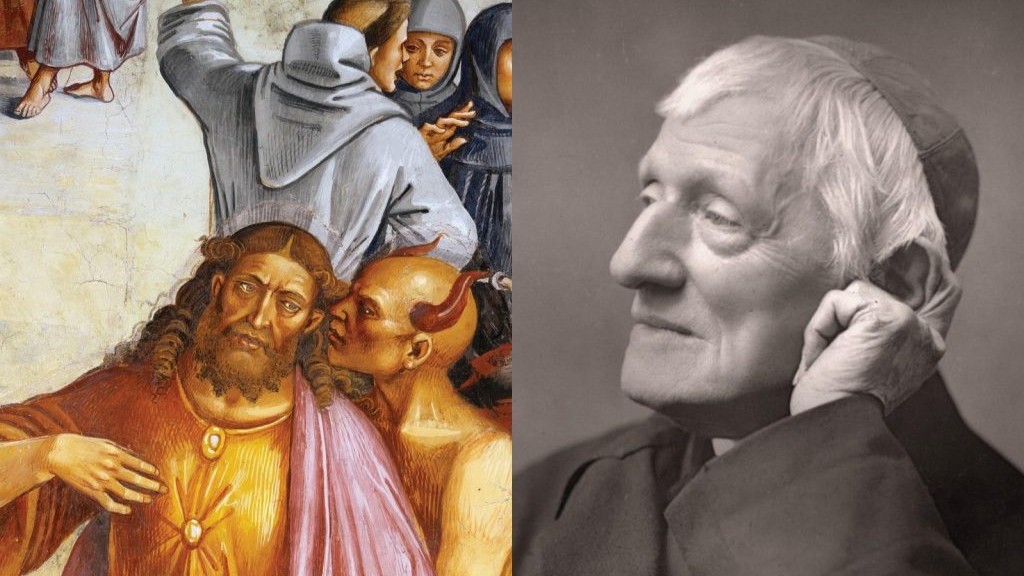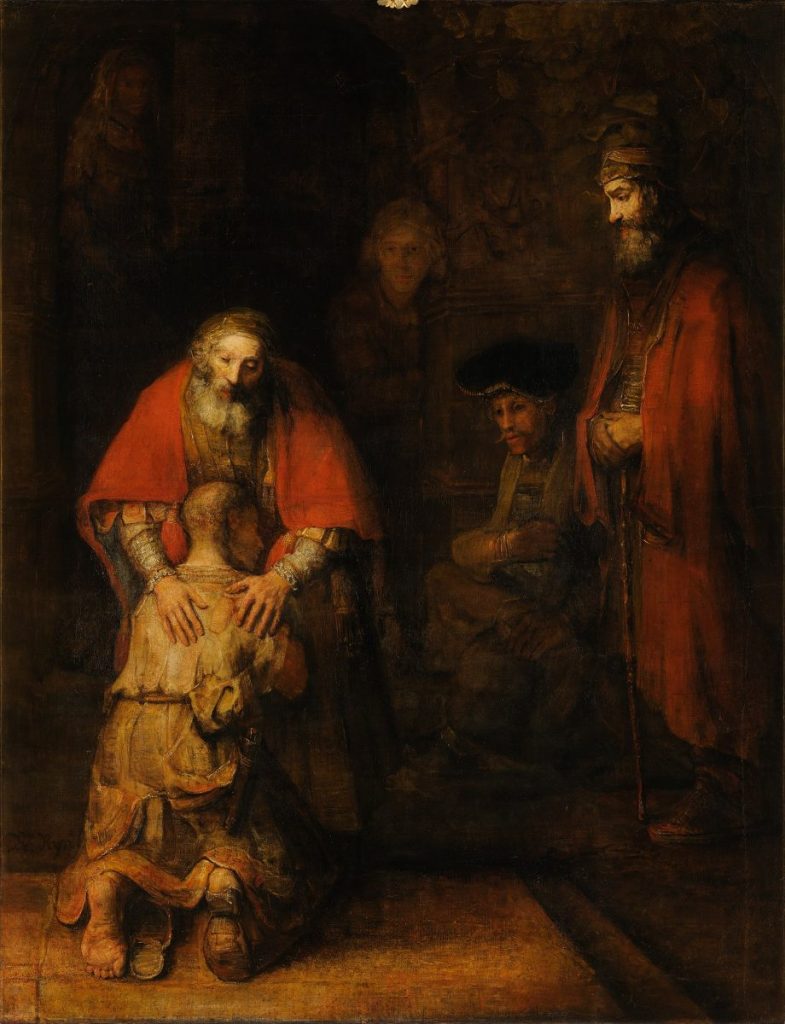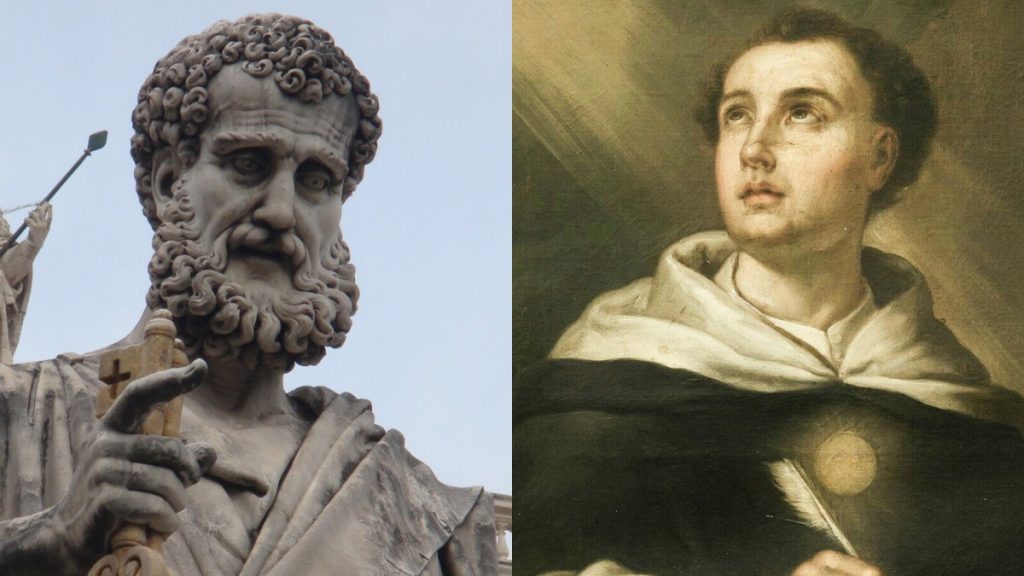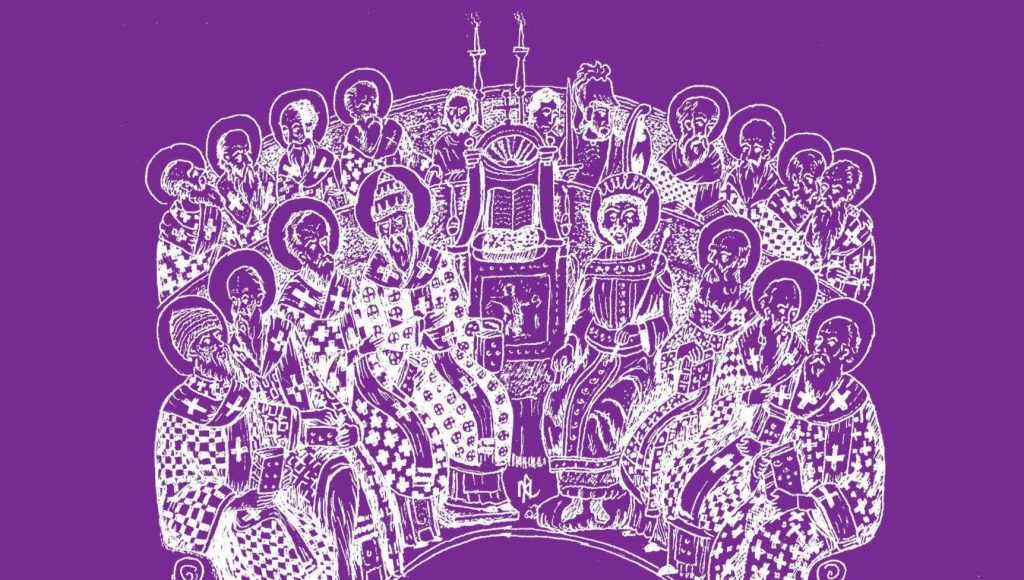Relevant Resources
Roadmap
Our Roadmap is as follows:
- Our thesis is that, contrary to the common protestant assertion that the term “Catholic” in the historic creeds was a reference to all Christians in general (which they often call “little c” catholic), the term actually referred to a singular, visible, identifiable communion and Church with the same faith, worship, and government. We will show this by:
- First, explaining how and why many protestants assert that the term “Catholic” in the creeds refers to a “little c” instead of “Big C” Catholic; then
- Second, how I discovered this idea of “little c” catholic was ahistorical; and finally
- Providing some evidence from the Church Fathers that there was never a “little c” understanding of the term “Catholic,” but always a “Big C” understanding.
“Little c” catholic: Avoiding the “Big C” Catholic in the Creeds
I never consciously considered becoming Catholic until the summer of 2017. Until then, I had been nurtured as a Christian in an environment where Catholicism was not welcomed, and looked upon as a leper (not universally, but frequently). Despite the fact that all the protestant sects I belonged to at various points disagreed on many important doctrines, they all agreed on one negative point: they were not Catholics.
However, there was this problem of the ancient creeds that we sometimes said, which usually included a line about believing in “one, holy, Catholic, and Apostolic Church.” As a protestant, I remember being confused by this the first time it happened, precisely because I knew we were not Catholic. The thought of being Catholic for us was completely contrary to our whole identity.
So I would often ask why we made this affirmation about believing in “one, holy, Catholic, and Apostolic Church” is we were not in fact Catholic. It was disturbing to me that there may be some tension between what we believed and what the ancient Church believed, as seemed obvious from this line.
However, when I raised this question, I frequently received the same answer, namely something like this: “Oh, we are ‘little c’ catholics.”
Everyone tried this because they knew that the term “Catholic” was in the ancient creeds, and that “Catholic” generally meant “universal,” which they took to mean a general reference to all Christians. So by claiming to be “little c” catholics, they were attempting to include themselves in the ancient creeds, while still rejecting what we continued to know as the Catholic Church (“Big C”) in our own day. I heard this from everyone I knew: non-denominational, presbyterians, baptists, reformed, etc. It was everyone’s “get out of jail free” card. No matter how different, peculiar, or novel they may have been on every issue under the sun, they all afforded themselves this out with respect to the ancient creeds: they were “little c” catholics. Intelligent people I respected asserted it (and still do), so I accepted it as a given.
No “little c” catholic in the Church Fathers
What I discovered in the Church Fathers–particularly those involved in writing and defending the ancient creeds–was there was no trace of this idea of “small c” catholic in their writings. For them, among those who claimed to be Christians, there were only Catholics (“Big C”), and non-Catholics (namely heretics and schismatics). That is all. Many of the Fathers make this explicit. They had a particular, visible, authoritative society of Christians in mind when they used the word “Catholic,” not a generalized and vague reference to “all Christians.”
But don’t take my word for it—take acclaimed Anglican patristic historian J.N.D. Kelly’s, who wrote as follows in his classic work, Early Christian Doctrines (pg. 190)1:
As regards ‘Catholic,’ its original meaning was ‘universal’ or ‘general’…As applied to the Church, its primary significance was to underline its universality as opposed to the local character of the individual congregations. Very quickly, however, in the latter half of the second century at latest, we find it conveying the suggestion that the Catholic is the true Church as distinct from the heretical congregations.
He concluded (pg. 191):
What these early fathers were envisaging was almost always the empirical, visible society; they had little or no inkling of the distinction which was later to become important between a visible and an invisible Church.
In fact, according to Kelly, to the extent there was any idea of an “invisible” “small c” catholic church, it tended to come from the gnostics, who claimed a sort of special, private knowledge for themselves to justify believing differently and separating from the Catholic Church.
Indeed, as we will see in a wide array of quotes from both Western and Eastern Church Fathers over many centuries, Kelly was absolutely correct—there was no “small c” catholic church, only the “Big C” Catholic Church. This idea of the one, true, Catholic, Apostolic Church existed throughout the first thousand years of Christianity.
The first use of the term “Catholic Church” comes as early as approximately 107, with St. Ignatius of Antioch, who was a companion of some of the Apostles. The very idea of the ancient Church Councils who wrote and defended the very creeds that many protestants claim to accept presupposes a “Big C” Catholic Church in which Christians live in visible unity of faith, worship, and government. This was not a merely spiritual, undefinable, always debatable, always elusive “small c” catholic church. Indeed, now, this concept seems to me intentionally fuzzy, as it allows those who proffer it the very autonomy which is the basis of their schism from the Catholic Church.
To this day, I have found no such idea of the word “Catholic” in the writings of the Church Fathers.
Even more disturbing to me was the fact that, when the Fathers described the non-Catholic heretics, they were invariably describing people that sounded a lot more like me, and the various protestant denominations I had belonged to: sects that presumed to interpret Scripture apart from the authority of the Church; who often lacked Apostolic Succession (and thus authority, and sometimes sacraments); and taught novel doctrines whose initial adherents were often known by the name of their founder, and at least initially confined to a particular geographic location.
This description continues to apply to thousands of protestant sects today, in stark contrast with the still-existing “Big C” Catholic Church.
In short, when exploring the writings of the very men who wrote and defended the ancient creeds, I found nothing like the idea of a “little c” catholic church. They always and everywhere referred to and described the “Big C” Catholic Church that possessed a unity of faith, worship, and government.
Without further ado, here are some examples from various Church Fathers illustrating this reality.
Evidence from the Church Fathers
St. Ignatius of Antioch, Letter to the Smyrnaeans (§8) (c. 107)
Let no man do anything connected with the Church without the bishop. Let that be deemed a proper Eucharist, which is [administered] either by the bishop, or by one to whom he has entrusted it. Wherever the bishop shall appear, there let the multitude [of the people] also be; even as, wherever Jesus Christ is, there is the Catholic Church.
He [St. Paul] wrote, besides these, one to Philemon, and one to Titus, and two to Timothy, in simple personal affection and love indeed; but yet these [books] are hallowed in the esteem of the Catholic Church, and in the regulation of ecclesiastical discipline. There are also in circulation one to the Laodiceans, and another to the Alexandrians, forged under the name of Paul, and addressed against the heresy of Marcion; and there are also several others [supposed books of Scripture] which cannot be received into the Catholic Church, for it is not suitable for gall to be mingled with honey.
Tertullian, Prescription Against Heretics (Ch. 30) (c. 200)
Where was Marcion [the heretic] then, that shipmaster of Pontus, the zealous student of Stoicism? Where was Valentinus then, the disciple of Platonism? For it is evident that those men lived not so long ago—in the reign of Antoninus for the most part—and that they at first were believers in the doctrine of the Catholic Church, in the church of Rome under the episcopate of the blessed Eleutherus, until on account of their ever-restless curiosity, with which they even infected the brethren, they were more than once expelled…
St. Cyprian of Carthage, Letter 68: To Florentius Pupianus, on Calumniators (§8) (254)
[T]hey alone have remained without, who even, if they had been within, would have had to be cast out. Nor does the Lord, the protector of His people, and their guardian, suffer the wheat to be snatched from His floor; but the chaff alone can be separated from the Church, since also the apostle says, “For what if some of them have departed from the faith? Shall their unbelief make the faith of God of none effect? God forbid; for God is true, but every man a liar” (Rom. 3:3-4). And the Lord also in the Gospel, when disciples forsook Him as He spoke, turning to the twelve, said, “‘Will you also go away?’ then Peter answered Him, ‘Lord, to whom shall we go? You have the word of eternal life; and we believe, and are sure, that You are the Son of the living God’” (John 6:67-69). Peter speaks there, on whom the Church was to be built, teaching and showing in the name of the Church, that although a rebellious and arrogant multitude of those who will not hear and obey may depart, yet the Church does not depart from Christ; and they are the Church who are a people united to the priest, and the flock which adheres to its pastor. Whence you ought to know that the bishop is in the Church, and the Church in the bishop; and if anyone be not with the bishop, that he is not in the Church, and that those flatter themselves in vain who creep in, not having peace with God’s priests, and think that they communicate secretly with some; while the Church, which is Catholic and one, is not cut nor divided, but is indeed connected and bound together by the cement of priests who cohere with one another.
Ecumenical Council of Nicaea (325)
And whosoever shall say that there was a time when the Son of God was not (ἤν ποτε ὅτε οὐκ ἦν), or that before he was begotten he was not, or that he was made of things that were not, or that he is of a different substance or essence [from the Father] or that he is a creature, or subject to change or conversion—all that so say, the Catholic and Apostolic Church anathematizes them.
(Can. 8) Concerning those who call themselves Cathari, if they come over to the Catholic and Apostolic Church, the great and holy Synod decrees that they who are ordained shall continue as they are in the clergy. But it is before all things necessary that they should profess in writing that they will observe and follow the dogmas of the Catholic and Apostolic Church; in particular that they will communicate with persons who have been twice married, and with those who having lapsed in persecution have had a period [of penance] laid upon them, and a time [of restoration] fixed so that in all things they will follow the dogmas of the Catholic Church. Wheresoever, then, whether in villages or in cities, all of the ordained are found to be of these only, let them remain in the clergy, and in the same rank in which they are found. But if they come over where there is a bishop or presbyter of the Catholic Church, it is manifest that the Bishop of the Church must have the bishop’s dignity; and he who was named bishop by those who are called Cathari shall have the rank of presbyter, unless it shall seem fit to the Bishop to admit him to partake in the honor of the title…
(Can. 9) If any presbyters have been advanced without examination, or if upon examination they have made confession of crime, and men acting in violation of the canon have laid hands upon them, notwithstanding their confession, such the canon does not admit; for the Catholic Church requires that [only] which is blameless.
(Can. 19) Concerning the Paulianists who have flown for refuge to the Catholic Church, it has been decreed that they must by all means be rebaptized; and if any of them who in past time have been numbered among their clergy should be found blameless and without reproach, let them be rebaptized and ordained by the Bishop of the Catholic Church…
So that these men are to have no authority to make appointments of persons who may be pleasing to them, nor to suggest names, nor to do anything whatever, without the consent of the bishops of the Catholic and Apostolic Church, who are serving under our most holy colleague Alexander; while those who, by the grace of God and through your prayers, have been found in no schism, but on the contrary are without spot in the Catholic and Apostolic Church, are to have authority to make appointments and nominations of worthy persons among the clergy, and in short to do all things according to the law and ordinance of the Church…
St. Cyril of Jerusalem, Catechetical Lecture No. 18 (§§23, 26) (c. 350)
(§23) It [the Church] is called Catholic then because it extends over all the world, from one end of the earth to the other; and because it teaches universally and completely one and all the doctrines which ought to come to men’s knowledge, concerning things both visible and invisible, heavenly and earthly; and because it brings into subjection to godliness the whole race of mankind, governors and governed, learned and unlearned; and because it universally treats and heals the whole class of sins, which are committed by soul or body, and possesses in itself every form of virtue which is named, both in deeds and words, and in every kind of spiritual gifts…
(§26) But since the word Ecclesia is applied to different things (as also it is written of the multitude in the theatre of the Ephesians, “And when he had thus spoken, he dismissed the Assembly” (Acts 19:14), and since one might properly and truly say that there is a Church of evil doers, I mean the meetings of the heretics, the Marcionists and Manichees, and the rest, for this cause the Faith has securely delivered to you now the Article, “And in one Holy Catholic Church,” that you may avoid their wretched meetings, and ever abide with the Holy Church Catholic in which you were regenerated. And if ever you are sojourning in cities, inquire not simply where the Lord’s House is (for the other sects of the profane also attempt to call their own dens houses of the Lord), nor merely where the Church is, but where is the Catholic Church. For this is the peculiar name of this Holy Church, the mother of us all, which is the spouse of our Lord Jesus Christ, the Only-begotten Son of God (for it is written, “As Christ also loved the Church and gave Himself for it” (Eph. 5:25), and all the rest, and is a figure and copy of Jerusalem which is above, which is free, and the mother of us all [Gal. 4:26]; which before was barren, but now has many children.
Ecumenical Council of Constantinople I (Creed, Can. 5) (381)
(Creed) And [we believe] in the Holy Ghost, the Lord and Giver-of-Life, who proceeds from the Father, who with the Father and the Son together is worshipped and glorified, who spoke by the prophets. And [we believe] in one, holy, Catholic and Apostolic Church. We acknowledge one Baptism for the remission of sins, [and] we look for the resurrection of the dead and the life of the world to come. Amen.
(Can. 5) Those who from heresy turn to orthodoxy, and to the portion of those who are being saved, we receive according to the following method and custom: Arians, and Macedonians, and Sabbatians, and Novatians, who call themselves Cathari or Aristori, and Quarto-decimans or Tetradites, and Apollinarians, we receive, upon their giving a written renunciation [of their errors] and anathematize every heresy which is not in accordance with the Holy, Catholic, and Apostolic Church of God.
St. Augustine, Of True Religion (§12) (c. 390)2
Repudiating all who do not carry philosophy into religious observance or philosophize in a religious spirit; those also who wax proud in wicked opinions or some other cause of dissension and so deviate from the Rule of Faith and from the communion of the Catholic Church; and those who refuse to own the light of the Holy Scripture and the grace of the spiritual people of God, which we call the New Testament—all of whom I have censured as briefly as I could—we must hold fast the Christian religion and the communion of the Church which is Catholic, and is called Catholic not only by its own members but also by all its enemies. Whether they will or no, heretics and schismatics use no other name for it than the name of Catholic, when they speak of it not among themselves but with outsiders. They cannot make themselves understood unless they designate it by this name which is in universal use…
St. Augustine, Faith and the Creed (Ch. 10, §21) (393)
[W]e believe also in the Holy Church, [intending thereby] assuredly the Catholic. For both heretics and schismatics style their congregations churches. But heretics, in holding false opinions regarding God, do injury to the faith itself; while schismatics, on the other hand, in wicked separations break off from brotherly charity, although they may believe just what we believe. Wherefore neither do the heretics belong to the Catholic Church, which loves God; nor do the schismatics form a part of the same, inasmuch as it loves the neighbor, and consequently readily forgives the neighbor’s sins, because it prays that forgiveness may be extended to itself by Him who has reconciled us to Himself, doing away with all past things, and calling us to a new life.
St. Augustine, Against the Fundamental Letter of Manichaeus (§§5-6) (397)
(§5) For in the Catholic Church, not to speak of the purest wisdom, the knowledge of which a few spiritual men attain in this life, so as to know it, in the scantiest measure, indeed, because they are but men, still without any uncertainty (since the rest of the multitude derived their entire security not from acuteness of intellect, but from simplicity of faith)—not to speak of this wisdom, which you do not believe to be in the Catholic Church, there are many other things that most justly keep me in her bosom. The consent of peoples and nations keeps me in the Church; so does her authority, inaugurated by miracles, nourished by hope, enlarged by love, established by age. The succession of priests keeps me, beginning from the very seat of the Apostle Peter, to whom the Lord, after his Resurrection, gave it in charge to feed his sheep, down to the present episcopate. And so, lastly, does the name itself of Catholic, which, not without reason, amid so many heresies, the Church has thus retained; so that, though all heretics wish to be called Catholics, yet when a stranger asks where the Catholic Church meets, no heretic will venture to point to his own chapel or house. Such then in number and importance are the previous ties belonging to the Christian name that keep a believer in the Catholic Church, as it is right they should, though from the slowness of our understanding, or the small attainment of our life, the truth may not yet fully disclose itself. But with you, where there are none of these things to attract or keep me, the promise of truth is the only thing that comes into play. Now if the trust is so clearly proved as to leave no possibility of doubt, it must be set before all the things that keep me in the Catholic Church; but if there is only a promise without any fulfilment, no one shall move me from the faith that binds my mind with ties so many and so strong to the Christian religion.
(§6) …But should you meet with a person not yet believing the gospel, how would you reply to him were he to say, I do not believe? For my part, I should not believe the gospel except as moved by the authority of the Catholic Church…
St. Vincent of Lerins, Commonitory (§§4-6, §86) (c. 434)
(§4) I have often then inquired earnestly and attentively of very many men eminent for sanctity and learning, how and by what sure and so to speak universal rule I may be able to distinguish the truth of Catholic faith from the falsehood of heretical pravity; and I have always, and in almost every instance, received an answer to this effect: That whether I or anyone else should wish to detect the frauds and avoid the snares of heretics as they rise, and to continue sound and complete in the Catholic faith, we must, the Lord helping, fortify our own belief in two ways: first, by the authority of the Divine Law, and then, by the Tradition of the Catholic Church.
(§5) But here someone perhaps will ask, Since the canon of Scripture is complete, and sufficient of itself for everything, and more than sufficient, what need is there to join with it the authority of the Church’s interpretation? For this reason—because, owing to the depth of Holy Scripture, all do not accept it in one and the same sense, but one understands its words in one way, another in another; so that it seems to be capable of as many interpretations as there are interpreters. For Novatian expounds it one way, Sabellius another, Donatus another, Arius, Eunomius, Macedonius, another, Photinus, Apollinaris, Priscillian, another, Iovinian, Pelagius, Celestius, another, lastly, Nestorius another. Therefore, it is very necessary, on account of so great intricacies of such various error, that the rule for the right understanding of the prophets and apostles should be framed in accordance with the standard of Ecclesiastical and Catholic interpretation.
(§6) Moreover, in the Catholic Church itself, all possible care must be taken, that we hold that faith which has been believed everywhere, always, by all. For that is truly and in the strictest sense Catholic, which, as the name itself and the reason of the thing declare, comprehends all universally. This rule we shall observe if we follow universality, antiquity, consent. We shall follow universality if we confess that one faith to be true, which the whole Church throughout the world confesses; antiquity, if we in no wise depart from those interpretations which it is manifest were notoriously held by our holy ancestors and fathers; consent, in like manner, if in antiquity itself we adhere to the consentient definitions and determinations of all, or at the least of almost all priests and doctors.
Ecumenical Council of Chalcedon (Session 15, Can. 14) (451)
Since in certain provinces it is permitted to the readers and singers to marry, the holy Synod has decreed that it shall not be lawful for any of them to take a wife that is heterodox. But those who have already begotten children of such a marriage, if they have already had their children baptized among the heretics, must bring them into the communion of the Catholic Church…
